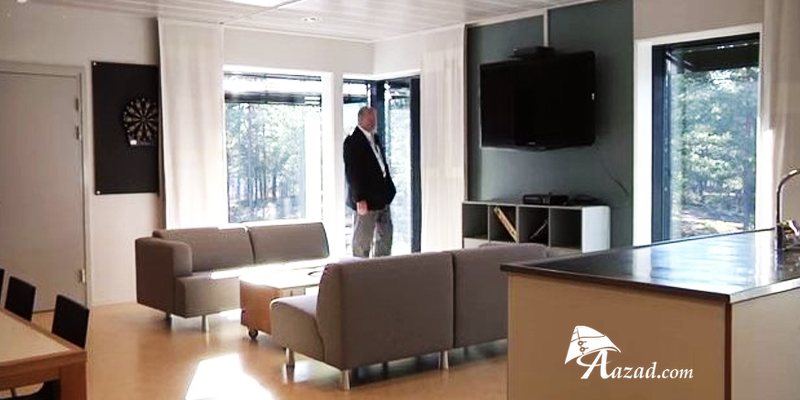- ●Breakthroughs in Prostate Cancer Treatment: What Every Patient Should Know
- ●Ovarian Cancer: The Silent Disease Women Cannot Ignore
- ●Children and Blood Cancer: Why Awareness is Crucial
- ●Women in Aviation India commences the celebration of 10th Girls in Aviation Day
- ●2025 Announcement, Appointment of New Board to Lead Hindustan National Glass & Industries Ltd
Norway Prisons: The Most Luxurious In The World

Any criminal justice system begins with law enforcement. Police in Norway are community-based, and trained to de-escalate situations with as few officers as possible. They do not even carry guns. Norwegian police did arm themselves in response to terror threats in 2014, but after 14 months, the force gave up their weapons.
After arrest, a criminal in Norway would be tried in court. The maximum sentence allowed in Norway is 21 years, even for crimes like murder. The death penalty for regular crimes was outlawed over a century ago, and further abolished in 1979 for crimes like treason or mass murder.
Even terrorist Anders Breivik, who killed 77 people in 2011 in the country's worst ever terror attack, was not eligible for the death penalty and sentenced to 21 years. Judges, however, can renew a prisoner's detention for 5 years at a time at the end of their sentence, leading to potential lifelong incarceration.
All prisons in Norway are considered a step above the rest. The country's prison system has been described as 'the nicest in the world'. In particular, many are focused on Bastoy Prison, a minimum security facility where the goal is rehabilitation over punishment. There are reportedly no bars on the windows, kitchens are fully stocked including sharp knives, guards and inmates have even developed friendship.
In Norway, losing one's freedom is considered enough of a punishment. Instead of looking for retribution, the country addresses crime as a social problem and looks to repair the harm caused by crime, rather than punish those responsible, a concept known as "Restorative Justice".
Roughly 80% of those released from Norway Prison are not re-incarcerated and go on to live crime-free lives. In contrast, in the USA, nearly 76.6% are re-incarcerated within 5 years of their release.
...



